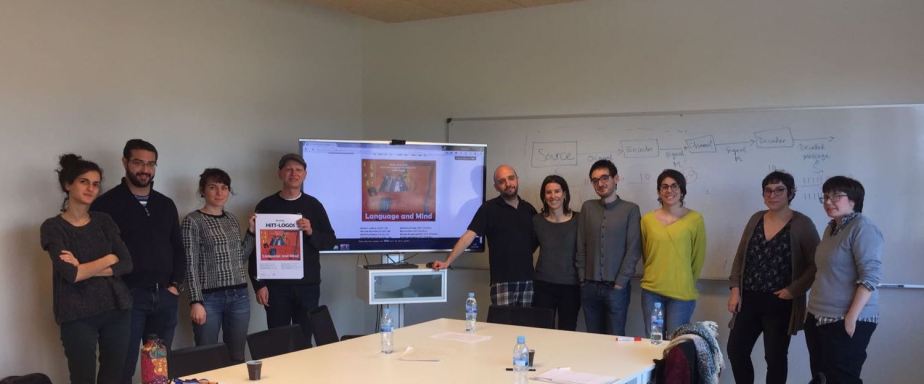Local friends Agustín Vicente and Marta Jorba organised a workshop on Language and Mind, so that members of HiTT (the UPV/EHU theoretical linguistics group) and LOGOS (the analytical philosophy research group at the University of Barcelona) can get together and share ideas.
 Amid philosophy talks, Katie gave a linguistic talk about the polysemy of posture verbs. Marta discussed the ontology of predicates like understand and see/watch, and how lexical aspect plays a big role there. Marina, another local PhD student, presented a proposal on how to formalise copredication constructions, with a modification on a previous proposal of Pustojevsky. The friends from Barcelona talked about a range of topics, from information theory and signalling theory, to personal identity and experience vs. bodily ownership. Very interesting to hear about topics one might not usually (think to) think about. 🙂
Amid philosophy talks, Katie gave a linguistic talk about the polysemy of posture verbs. Marta discussed the ontology of predicates like understand and see/watch, and how lexical aspect plays a big role there. Marina, another local PhD student, presented a proposal on how to formalise copredication constructions, with a modification on a previous proposal of Pustojevsky. The friends from Barcelona talked about a range of topics, from information theory and signalling theory, to personal identity and experience vs. bodily ownership. Very interesting to hear about topics one might not usually (think to) think about. 🙂
Looking forward to future meetings like this!




